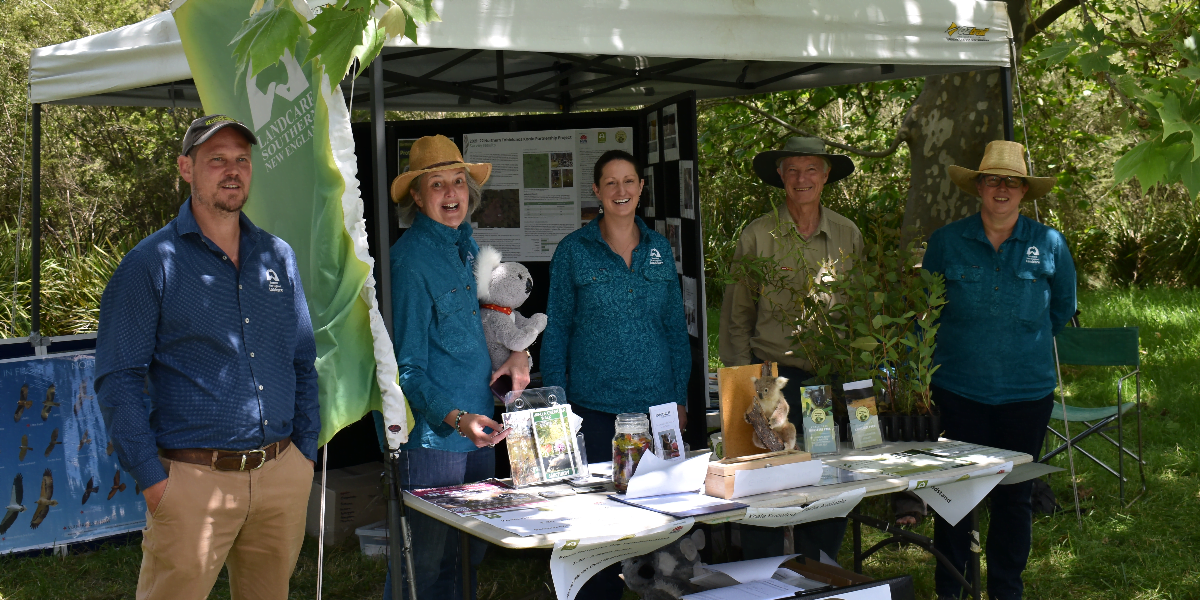It should come as no surprise to most New Englanders that koala populations have been struggling for some time now. But a dedicated Southern New England Landcare team has been working quietly behind the scenes to deliver the Northern Tablelands Koala Project.
Since the project’s initiation in 2020, huge inroads have been made into understanding and improving outcomes for koala population numbers. The project has now been extended until at least 2025 and makes the big promise on their website that they aim to “help ensure the survival of the koala for the next 100 years”.
The project’s funding is chiefly from the NSW State Government’s Saving our Species (SoS) framework, which is dedicated towards threatened species conservation.
According to the project outline, the Northern Tablelands area bordered by Guyra and Uralla was chosen as the initial target area as it is considered a “koala hotspot” containing a “resilient yet sparse koala population” and ideal habitat for a future stable population.
The region’s heavy job of koala conservation currently rests with Des Andersen, the Koala Conservation Officer for Southern New England Landcare.
The Koala Project has four main objectives: koala habitat conservation, conservation through community action, safety and health monitoring and preservation for local koalas, and building knowledge on koala habitats and behaviours.
Having worked on the project since its commencement in 2020, Mr Andersen comments that these objectives haven’t changed; rather, they now act to build upon the knowledge compiled in the last three years and through previous monitoring exercises.
“In three years, we have undertaken multiple site surveys, discovering what koalas eat (preferred feed trees), where they are, and movement corridors between habitat areas.”
“We are also developing a broader understanding of the key threats that koalas face from human activities.”
“We work with local wildlife carers, who share their knowledge, and that enables us to provide actions that help reduce these threats.”
The sources of these threats vary, with recent floods, droughts, and bushfires certainly taking their toll. More important to this project, however, is perhaps how human involvement can make or break the cycle.
This valuable knowledge, combined with a large focus on community involvement, seems to be what gives this project its edge.
“Working with our local community has perhaps been the most positive aspect of the project,” said Mr Andersen.
“Our community has been very involved, with over 50 landholders receiving funding to plant and conserve habitat, and more generally, with our community reporting koala sightings and helping protect our local koala population through actions that reduce threats.”
The project also celebrated the installation of an electronic road warning sign outside the Uralla Golf Club. This warning sign alerted road users to potential wildlife in the area during their peak koala movement times of November to March and proved effective in reducing the number of vehicle strikes.
When asked to comment on the enormity of the project in terms of conservation, Mr Andersen said that without intervention, it is likely that koalas could be extinct in the wild by 2050.
Mr Andersen firmly believes that education and community involvement is critical to positive outcomes for koalas in the future.
“I believe the project, along with other media, has helped increase our knowledge of our local koala population to a point where most people are now aware that, although they are cryptic animals and hard to spot, they do live amongst us in both rural and urban environments.”
With funding currently approved through to at least the end of 2025, local involvement in the project is still very much encouraged and welcomed.
For more information about the project or how to participate, visit the Southern New England Landcare website.
Like what you’re reading? Support New England Times by making a small contribution today and help us keep delivering local news paywall-free. Support now


